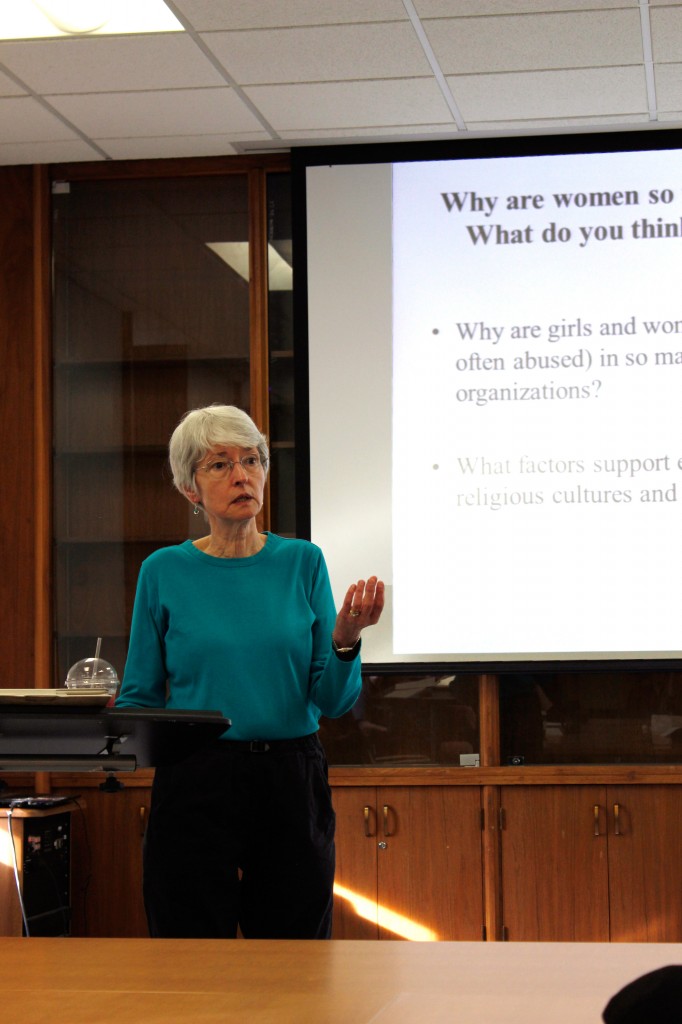
For centuries, intellectuals around the world have protested the distorted standards between men and women. To address those inequalities, though, Catherine Wessinger, a professor at Loyola University in New Orleans, broke down the historical roots.
Wessinger discussed the context, issues and cultural progress in “Theory of Women in Religions,” as part of the Religious Studies Speaker Series lecture series.
Growing up in what she described as a conservative family setting in South Carolina, Wessinger said her feminist attitude began because of the second wave of feminism in the late 1960s to early 1970s and the academic research she pursued herself.
“I’m a woman who is interested in religion — that’s why I study women in religion,” Wessinger said. “It’s part of my feminism, wanting to make an academic contribution toward women’s equality to understand the factors that promote women’s equality.”
Wessinger said that the connection between religion and patriarchy depends on the nuances of a society’s culture.
“Religion is expressed through culture, and culture consists of all the products of human creativity,” Wessinger said. “Women in patriarchal societies, in general, will be subordinate to males in their own class.”
According to Wessinger, patriarchy commonly includes male inheritance, control of female sexuality by male family members and a preference for sons over daughters, which can lead to female infanticide, or the killing of female babies.
Making a point to distinguish that not all religions and cultures will oppress and subordinate women, she said inequality was more common among the male-focused religions.
“Dominant religious traditions were formed in classical patriarchal society, but religious traditions are internally diverse,” Wessinger said. “In patriarchal religions women have frequently been defined as less than a man.”
Wessinger also discussed different origins of patriarchy, such as how economics influence gender norms. She linked both patriarchy and matriarchy back to the division of labor and the support of the family in different societies.
She explained that anthropologists have found that in some foraging societies, including the San people of Southern Africa, 60-80 percent of the food is procured by women. Because women provide sustenance, they are more likely to be valued in society. This differs from more intensive agricultural societies, which lead to patriarchy.
“Because women are not producing economic primary resources men don’t see them as economically productive,” Wessinger said.
But Wessinger said she sees a change in the current cultural and religious patriarchies in many Western countries. These changes are due in part to the traditional division of labor, economics, technological advancements and education.
Sarah Ann King, an undeclared freshman, said she found how religion influences society interesting.
“I learned more in depth about gender dynamics and about the role that religion plays in society’s view,” King said.
As a feminist, Wessinger said she will always support women who struggle with oppression but warned against making broad-based assumptions about religious beliefs.
“I’m always rooting for women who are struggling for equality in a religious tradition,” Wessinger said. “It’s not for white feminists in America to dictate to women, in a whole variety in religions around the world, the choices they make about their lives.”
Correction: This article previously stated that the lecture was part of the IASH series, but it is in fact part of the Religious Studies Speaker Series.


